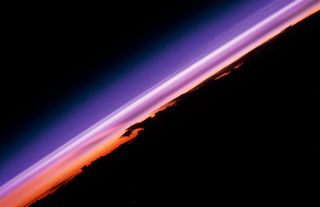Brandon has been a senior writer at Live Science since 2017, and was formerly a staff writer and editor at Reader's Digest magazine. His writing has appeared in The Washington Post, CBS.com, the Richard Dawkins Foundation website and other outlets. He holds a bachelor's degree in creative writing from the University of Arizona, with minors in journalism and media arts. He enjoys writing most about space, geoscience and the mysteries of the universe.
Latest articles by Brandon Specktor
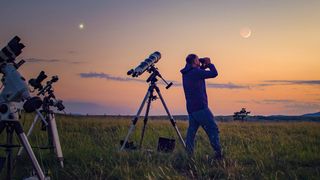
Best telescopes 2026: Observe stars, galaxies and nebulas
By Gemma Lavender last updated
Buying Guide These are the best telescopes for stargazing and astronomy with top models from Unistellar, Celestron and ZWO.

Best compact binoculars 2026: small and lightweight binoculars for all occasions
By Jase Parnell-Brookes last updated
Buying Guide We've rounded up the best compact binoculars, taking into account their build quality, visuals, and how compact they are.
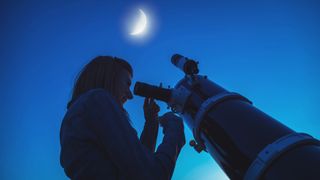
Best telescopes for deep space 2026: View the universe in breathtaking detail
By Tom Kerss last updated
Buying Guide Here are the best telescopes for deep space — gaze far into the night sky and survey the cosmos in impressive detail.
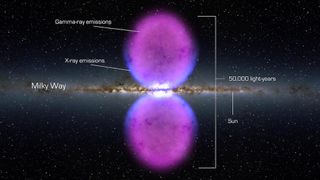
'Ice cube' clouds discovered at the galaxy's center shouldn't exist — and they hint at a recent black hole explosion
By Brandon Specktor published
Twin orbs of superhot plasma at the Milky Way's center known as the "Fermi bubbles" contain inexplicable clouds of cold hydrogen, new research reveals.
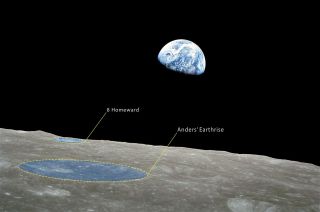
Scientists scan famous 'Earthrise' crater on mission to find alien life in our solar system
By Brandon Specktor published
A large lunar crater featured in the iconic 'Earthrise' photo has just helped the European JUICE spacecraft hone its alien-hunting instruments during a once-in-a-lifetime flyby.

Best eyepieces for telescopes 2025: A crucial telescope accessory to invest in
By Damian Peach last updated
Buying Guide The best eyepieces for telescopes can transform your skywatching experience, allowing you to get closer to the planets, comets, and stars.
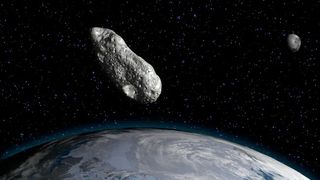
Can you see Earth's new 'mini-moon' with the naked eye?
By Brandon Specktor published
On Sunday, Sept. 29, Earth captured a new "mini-moon" called 2024 PT5. The bus-size asteroid is expected to orbit our planet for 57 days, but is too small to be visible to amateur skywatchers.
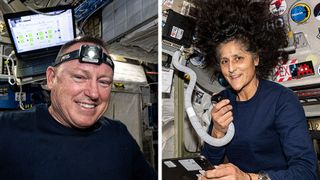
Boeing Starliner astronauts will spend at least 240 days stuck in space — is that a new record?
By Brandon Specktor published
NASA astronauts Butch Wilmore and Sunita Williams will spend at least eight consecutive months aboard the International Space Station as their Boeing Starliner spacecraft returns to Earth empty. Is their extended spaceflight record-setting?
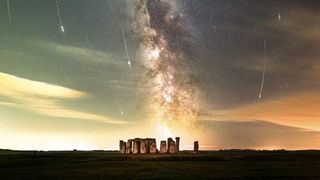
Perseid meteor shower rains 'shooting stars' over Stonehenge in glorious astrophotography image
By Brandon Specktor, Ben Turner published
A UK-based astrophotographer captured this stunning composite image of the Perseid meteor shower raining "shooting stars" over Stonehenge.
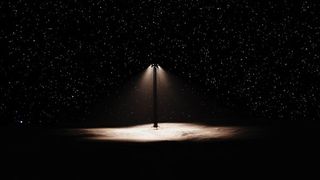
Researchers want to build 'streetlights' on the moon — and they'd be taller than the Statue of Liberty
By Brandon Specktor published
A private company has received funding from the U.S. government to build the first-ever "streetlights" on the moon — towering, Statue of Liberty-sized structures that could withstand the brutal lunar night.

Why I watched the solar eclipse with my kids, a goose and 2,000 trees
By Brandon Specktor published
The total solar eclipse on April 8 plunged Syracuse, New York's Milton J. Rubenstein Museum of Science & Technology into darkness for 90 seconds, creating a wondrous and memorable totality.
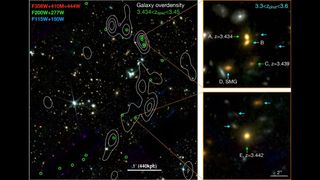
James Webb Space Telescope discovers 'Cosmic Vine' of 20 connected galaxies in the early universe
By Brandon Specktor published
The James Webb Space Telescope has discovered a massive chain of 20 galaxies in the early universe, raising questions about the formation of the largest structures in the cosmos.
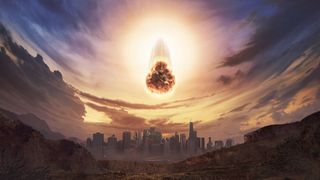
'Planet killer' asteroids are hiding in the sun's glare. Can we stop them in time?
By Brandon Specktor published
In the glare of the sun, an unknown number of near-Earth asteroids move on unseen orbits. A new generation of space telescopes could be our best defense against potential disaster.
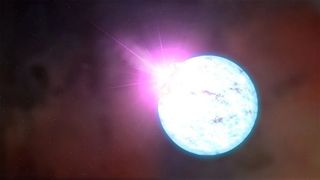
Ultra-powerful plasma 'blades' could slice entire stars in half, new paper suggests
By Brandon Specktor published
Stars could be sliced in half by "relativistic blades," or ultra-powerful outflows of plasma shaped by extremely strong magnetic fields, an unpublished paper claims.
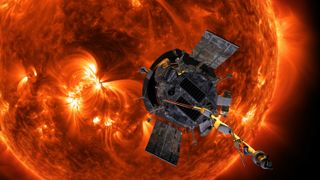
NASA's Parker Solar Probe smashes record for fastest human-made object
By Tia Ghose, Brandon Specktor published
NASA's Parker Solar Probe has reached a record-breaking speed as it gets a gravitational assist from Venus to fall closer to the sun's scorching surface.

Astronomers want you to watch the Oct. 14 'ring of fire' eclipse with a disco ball. No, seriously.
By Brandon Specktor published
You can't stare at the sun, so how do you watch an eclipse? By reflecting it off of a disco ball, a team of astronomers suggests.
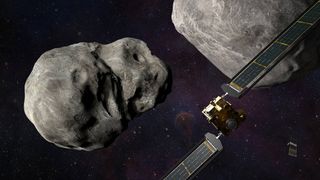
Asteroid hit by NASA's DART spacecraft is behaving unexpectedly, high school class discovers
By Brandon Specktor published
Asteroid Dimorphos, which NASA intentionally hit with a rocket during its DART mission in September 2022, is behaving in unpredicted ways.
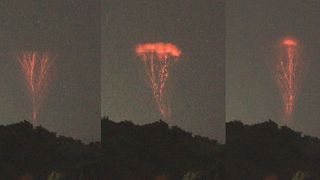
Photographer captures rare 'gigantic jets' of upside-down lightning blasting out of Atlantic hurricane
By Brandon Specktor published
Gigantic jets, which are 50 times more powerful than typical lightning bolts and can reach the edge of space, were seen erupting out of Hurricane Franklin near Puerto Rico.
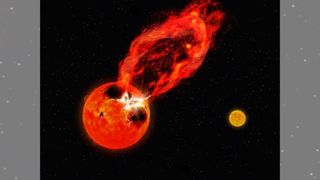
Gargantuan 'superflare' from distant star may have launched one of the strongest solar storms ever seen
By Brandon Specktor published
Scientists studying a star system in Orion witnessed one of the most powerful stellar eruptions ever seen — and it could be devastating to nearby planets.
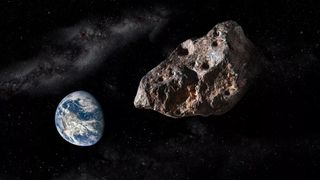
'Potentially hazardous' skyscraper-size asteroid will zip past Earth on April 6
By Brandon Specktor published
The potentially hazardous asteroid 2023 FM is larger than a 40-story building and will zoom within 7.5 lunar distances from Earth on Thursday, April 6, according to NASA.
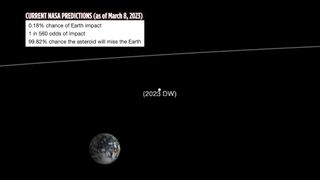
Newly discovered asteroid the size of a swimming pool has a 1-in-600 chance of colliding with Earth, NASA says
By Brandon Specktor published
The newly discovered asteroid 2023 DW could collide with Earth in February 2046, although the odds of an impact are low.
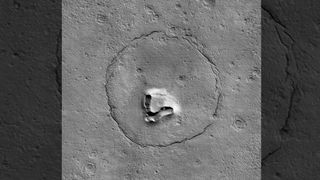
NASA spies Martian rocks that look just like a teddy bear
By Brandon Specktor published
A broken hill, an ancient crater and the human tendency to find faces everywhere may explain the teddy bear on Mars.
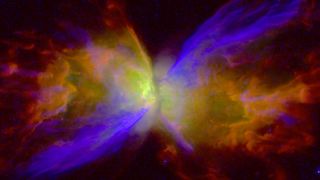
Spectacular Butterfly Nebula offers a glimpse of our sun's final fate
By Brandon Specktor published
New time-lapse images of the beautiful Butterfly Nebula come closer to explaining its spectacular strangeness.
Breaking space news, the latest updates on rocket launches, skywatching events and more!


